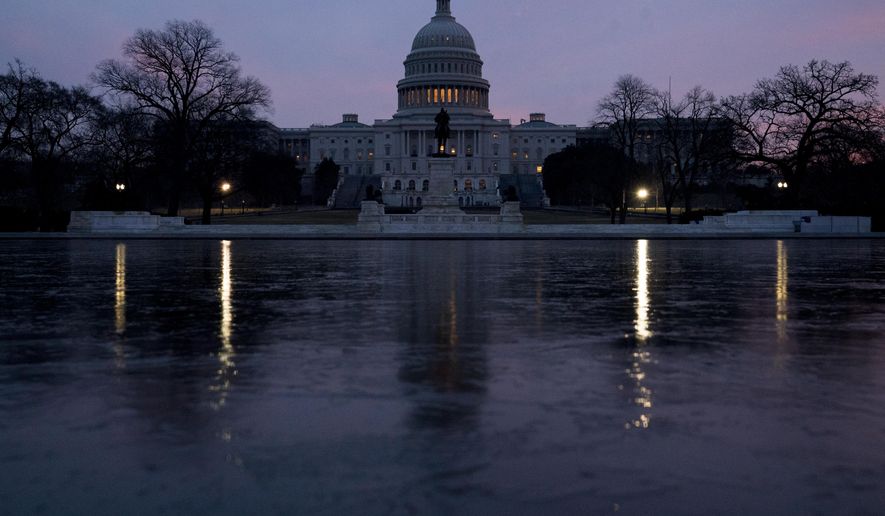The Muslim Brotherhood still poses a significant global threat and ought to be officially designated a terrorist group by the Trump administration, a trio of experts told Congress on Wednesday.
The Islamist group has long been a polarizing force in the region, with some saying it represented a path to a more moderate Muslim-centered politics while others said it served as a front and smiling public face for more radical, violent movements in the region. Whether the group should be placed on the U.S. terror list “has been a topic of debate here in Congress in recent years, Rep. Ron De Santis, the Florida Republican who chairs the House Oversight national security subcommittee, acknowledged at Wednesday’s hearing.
Muslim Brotherhood critics in Congress hoped to use the hearing to kick off a drive to designate the group as a terrorist organization, a move initially blocked by the Obama administration State Department. Several witnesses told the panel there was ample evidence the Brotherhood deserved the terrorist tag.
“The Brotherhood certainly means to be global and it means to be a threat,” said Dr. Hillel Fradkin, a senior fellow at the Hudson Institute think tank, testified.
Rep. Jody Hice, Georgia Republican, said that the threat of the Brotherhood cannot be ignored at home and abroad.
“The Muslim Brotherhood is alive and well, and they have had a number of splinter groups that have been birthed out of the main group that are present right here in the United States,” Mr. Hice said in an interview.
Daniel Benjamin, former coordinator of counterterrorism for the State Department under Mr. Obama, was the lone dissenter on Wednesday’s panel, sparking several sharp exchanges about the danger posed by the Muslim Brotherhood.
“Does the Muslim Brotherhood constitute a global threat? I would answer that it does not,” said Mr. Benjamin.
Mr. Benjamin said the Brotherhood movements in various countries are not a monolith, and that many of its affiliates support democracy and reject violence. He also noted that taking a hardline approach against the group could alienate non-extremist Muslims living in the U.S.
But Mr. Fradkin refuted Mr. Benjamin, said there was little evidence the Muslim Brotherhood had genuinely rejected violence as a means to power if electoral efforts fall short.
For Brotherhood leaders, he said, violence was “a tactical question.”
“There has been no repudiation of violence, and there is no such statement in the historical record,” he added.
Jonathan Schanzer, a senior vice president of the Foundation for Defense of Democracies, told the panel, “There’s really nothing in [the Brotherhood’s] creed, which is ultimately the dogma that they adhere to at their core, that suggests that they have given up violence as an approach or that they have embraced democracy.”
Mr. Benjamin argued the Muslim Brotherhood did not qualify as a terrorist organization based on U.S. law, and that such a classification could be counterproductive to U.S. interests.
“There is no legal basis for designating the Brotherhood based on ideology,” he said. “Terrorist designations are done on the basis of violent acts. That’s it.”
The Muslim Brotherhood has a network of affiliates in over 70 countries, and has been labeled as a terrorist organization by Egypt, Saudi Arabia, and the United Arab Emirates.
The United States has designated multiple Muslim Brotherhood affiliates as terrorist organizations, including the Sunni-fundamentalist group Hamas, but has stopped short of designating the group as a whole. The administration talked of considering the classification shortly after Mr. Trump was elected, but has yet to act, leading to a drive in Congress to make the declaration.




Please read our comment policy before commenting.